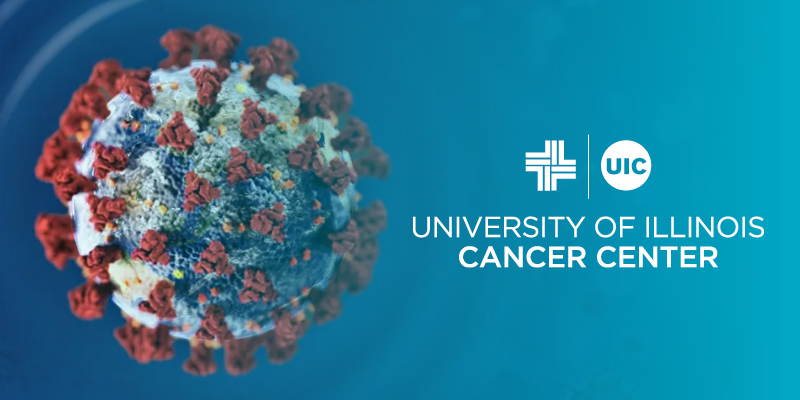
As of April 6, Illinois has a total of 11,256 known cases of the novel coronavirus, including 274 deaths. On March 26, Gov. J.B. Pritzker issued a “stay-at-home” order to limit the risk of the spread of COVID-19 to residents of Illinois. Residents can still conduct essential business, like shop for groceries and medicine, or go to the hospital.
Health care professionals have been at the forefront of the pandemic, and while some University of Illinois Cancer Center members do not treat patients, they are finding other ways to help. When she first learned of the widespread shortages of personal protective equipment (PPE) a few weeks ago, UI Cancer Center member Lisa Tussing-Humphreys, PhD, MS, RD, contacted her colleagues at the University of Illinois College of Medicine to ask what they needed. Tussing-Humphreys donated gloves, surgical gowns, sanitizing wipes and masks. “It’s the least we can do for our colleagues during this crisis,” she said.
University of Illinois Cancer Center member Elizabeth Lerner Papautsky, PhD, authored a post for the blog Young Survival Coalition on how cancer patients can be an active participant in their care during the COVID-19 pandemic. Papautsky, research assistant professor of biomedical and health information sciences, is a breast cancer survivor, having been diagnosed with invasive ductal carcinoma in September 2018. Read more: https://blog.youngsurvival.org/cancer-care-during-covid-19/
During this time of transitioning the University of Illinois at Chicago into a digital campus, the college’s digital services department has developed a video on how to turn your home into an amateur recording studio should the need arise to produce a visual presentation. Jeff Warner, the Digital Imaging Lead for Creative and Digital Services, provides tips on proper lighting, audio, framing, hardware and post-production. Learn more: https://www.youtube.com/watch?v=6wbQjVnrf1E
Chicago Mayor Lori Lightfoot called the pandemic “a public health red alarm” on April 6, and she said her administration will unveil a plan to address COVID-19’s toll on black and brown Chicagoans after data showed they were being hit especially hard by the disease. About 70% of Chicagoans who have died are African American, she said.
If you or anyone in your laboratory is assisting in fighting the coronavirus in any way, we would like to hear about it. Please email Sam Hostettler at [email protected].
